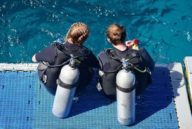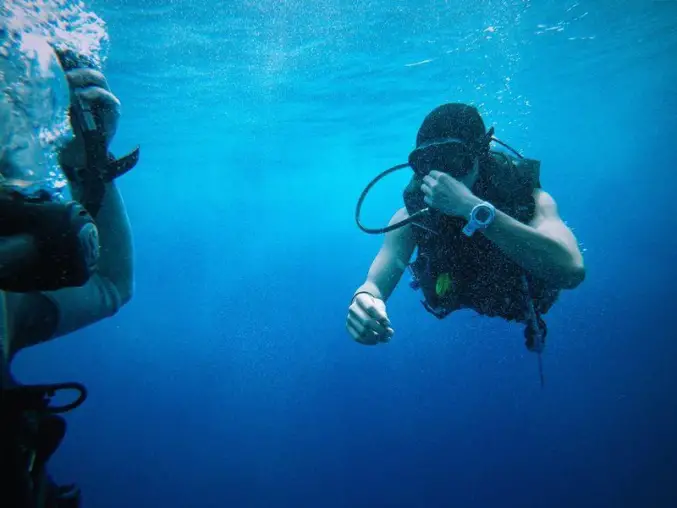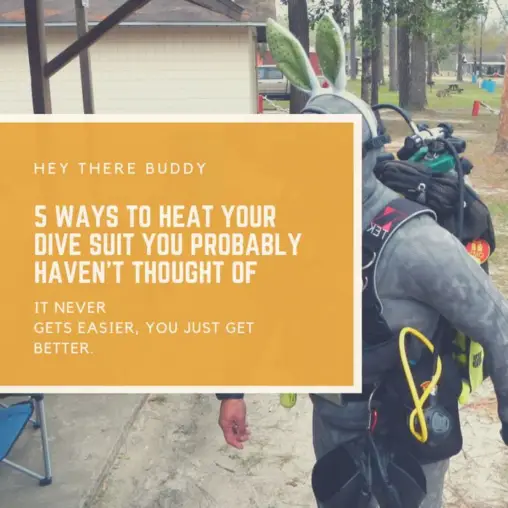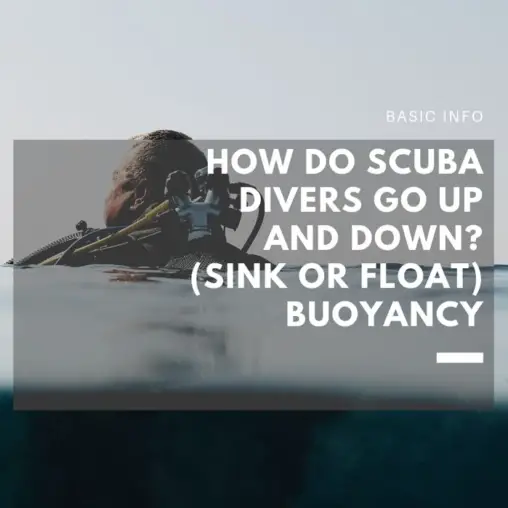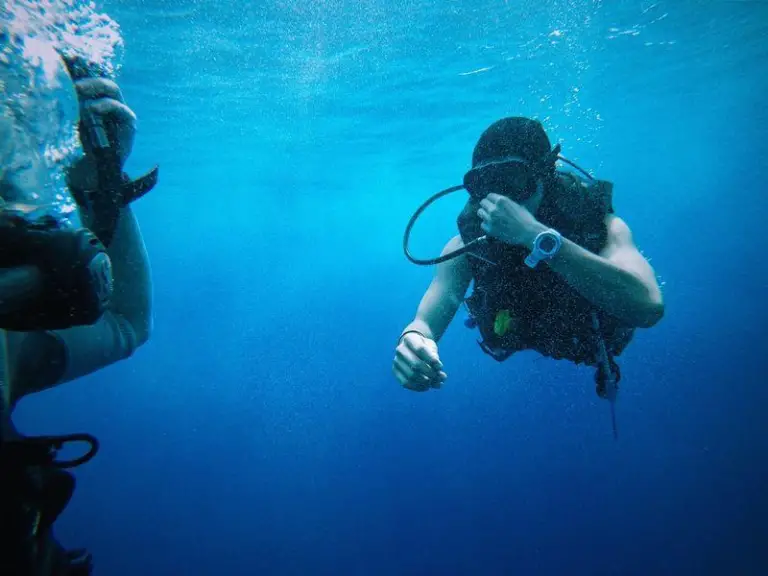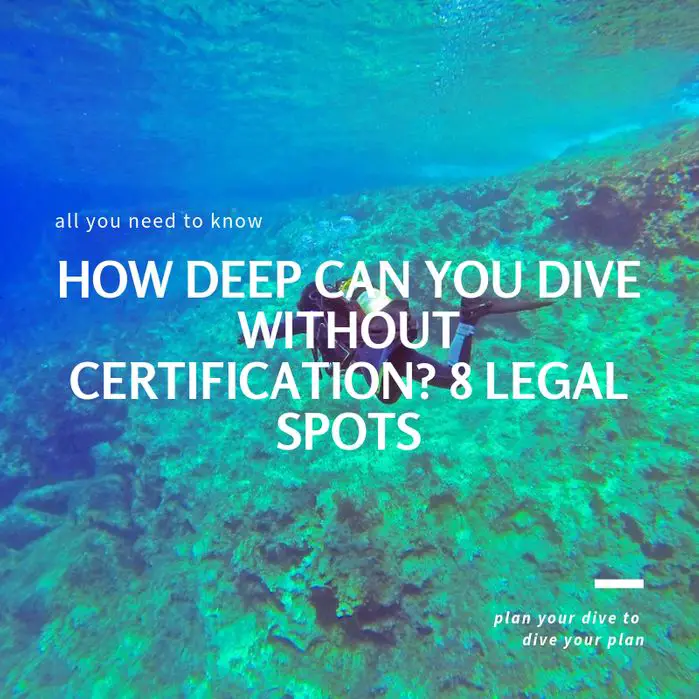
The first time I went scuba diving I was, indeed not technically certified. However, what I do was is taking a scuba diving introductory course.
This course happened at a Resort in Maui and most of the diving I did was by the pool, though I later went into the reef and took an extremely short and shallow dive.
And there was an instructor with me the whole time. So, diving without certification is more than possible, the thing is you are much more regulated than you would normally be, or it is extremely dangerous. However, you can actually dive without certification and if you want to know where you just have to keep on reading.
Where can I dive without a certification?
Technically? Anyway, there are no regulations whatsoever on you needing certification to dive. You don’t even need it to rent gear.
However, the reason people get certified is that it is often dangerous to dive if you haven’t taken the certifications.
Some great places to scuba dive in without a certification?
Ocean Frontiers in the Cayman Islands, and Four Seasons Maui both offer some of the best introductory courses, and the only pre-requisite to dive is to know how to swim.
Deep Sea World in Scotland lets you, scuba dive if you are over 16, and with sharks. Denver Aquarium lets you take a scuba dive course.
Green Island Reef Cruises lets you dive in Australian reefs.
Most resorts in the Caribbean offer the option to scuba dive without certification.
Cozumel in Mexico lets you take a course on scuba diving an is one of the courses that let you go a little more freedom when getting to dive on actual open water.
All You Need To Know About Cozumel in Mexico : Cozumel Scuba Diving Trip
Hol Chan in Belize will also let you scuba dive in the reef. In Curaçao, you’ll also be able to do so and see marine wildlife.
Do you Like to Know More Location To Dive Phi Phi Scuba Diving Islands its really charm check out the post
So basically, if you want to scuba dive without certification you’ll have to do it either at really “easy” destinations.
You can take diving introductory courses, you can go to aquariums, or you can even change scuba for snuba, which is similar but your tank is on the surface, so you can’t go deeper than 10 ms, which is still deeper than snorkeling but not really deep.
The thing is that in most places to scuba dive that actually require you to know what you are doing, they will probably ask for a certification in order to protect the group or agency you are going with (considering it is not safe, at all, to dive alone).
Recommanded Location To Dive Phi Phi Scuba Diving Islands its really charm check out the post
For example, Mexican scuba diving expeditions ask for you to show your certification, especially when going to specific sites.
On the other hand, Belize Black Hole won’t ask you for the certification, but they strongly advise you not to take this trip without one, since it is extremely hard and you can easily end up with decompression disease.
If you wanted to dive alone, which is 100% not recommended by anyone ever, you can just rent/buy scuba gear and do it.
Since the sport is not regulated at all, the purchase of the gear will obviously not require certification.
But never do this, unless you are a professional, and always dive at least in pairs. It is extremely unsafe to dive on your own without experience and proper certification.
Why is it dangerous?
Bunch of reasons. First, even if you have scuba dove before and know the basics on sinking and floating and breathing, there are a lot of things that don’t even cross your mind that you will be taught in the certification.
First, you learn how to plan your dive and choose the right gear. This is more important than it might seem because you learn a lot of factors you need to take into account before taking a long dive.
You will also learn a lot of signals and factors that are red flags when you are underwater, most importantly they teach you how to identify your no-decompression limit, or more accurately when you are approaching it.
This is extremely important to avoid decompression illness, which could end up being extremely dangerous and even cause paralysis or death.
If you don’t know what decompression illness is the please, please, take a certification course before getting anywhere near a scuba gear.
A certification also teaches you essential things like how to get water out of your mask, how to enter and exit the water (which is harder than you might think), how to control your sinking and floating based on buoyancy and your BCD.
You will also learn basic underwater navigation, this is something I had never considered until I took the course, I just figured you’d swim around, but not knowing where you are at all is extremely dangerous.
Finally, you get to learn about safety procedures, which considering you are a bunch of feet underwater and your breathing depends on a gas tank, you should really pay attention to.
Not knowing any of these things can seriously put your life and health at stake. Not only could you get any of the injuries related to pressure and nitrogen intake.
Also, getting certified is not really as expensive as it sounds, especially considering it could save your life while letting you enjoy a very fun activity. It depends on the certification program you choose and the organization you get into. You can pay for weekly courses, biweekly, once a week for a month, etc.
If you just really don’t want to take a certification, then for your own well-being you can scuba dive at a fair amount of resorts or check out at your local aquarium if they have similar available activities. As long as you get to enjoy the amazing sport that scuba diving is, and do it safely then really anyplace is good to do it.
